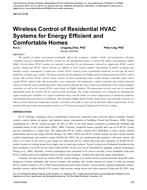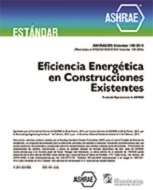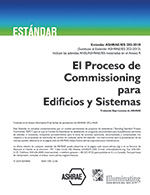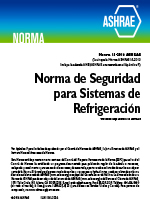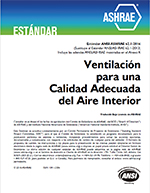Description
The quality of indoor environment profoundly affects the occupants’ comfort, health, and productivity. Heating, ventilation and air conditioning (HVAC) systems are the fundamental means to control the indoor environmental quality (IEQ). Current home HVAC systems are typically controlled by one thermostat, referred as single-zone HVAC control systems. Single-zone HVAC control systems are difficult to meet various comfort requirements of indoor occupants and
minimize energy consumption. A multi-zone wireless HVAC control system is potentially beneficial to overcome the above limitations of single-zone systems. This paper presents the development of a ZigBee protocol-based multi-zone HVAC control system. This wireless HVAC control system consists of sensor monitoring nodes, airflow damper controller nodes, and a central HVAC control node. Microcontrollers were integrated with temperature, relative humidity and motion detection sensors to form the sensor monitoring nodes. Data acquired through the sensor nodes was transmitted to the wireless damper controllers as well as the central HVAC control node via ZigBee modules. The temperature of each zone can be controlled individually using the wireless HVAC control system developed. The system performance was evaluated by analyzing the signal transmission reliability in a typical residential house and the ability to control temperatures at simulation chambers representing multi-zone indoor environment. The developed ZigBee-based wireless mesh sensor and controller network was able to control multi-zone temperature quickly, accurately and stably to meet various thermal comfort requirements. It was estimated that the system can potentially result in a 27.8% energy saving for heating and 38.6% for cooling.
Citation: ASHRAE Conference Papers, 2010, vol. 116, pt. 2, Albuquerque, NM
Product Details
- Published:
- 2010
- Number of Pages:
- 8
- File Size:
- 1 file , 2.4 MB
- Product Code(s):
- D-AB-10-C038
